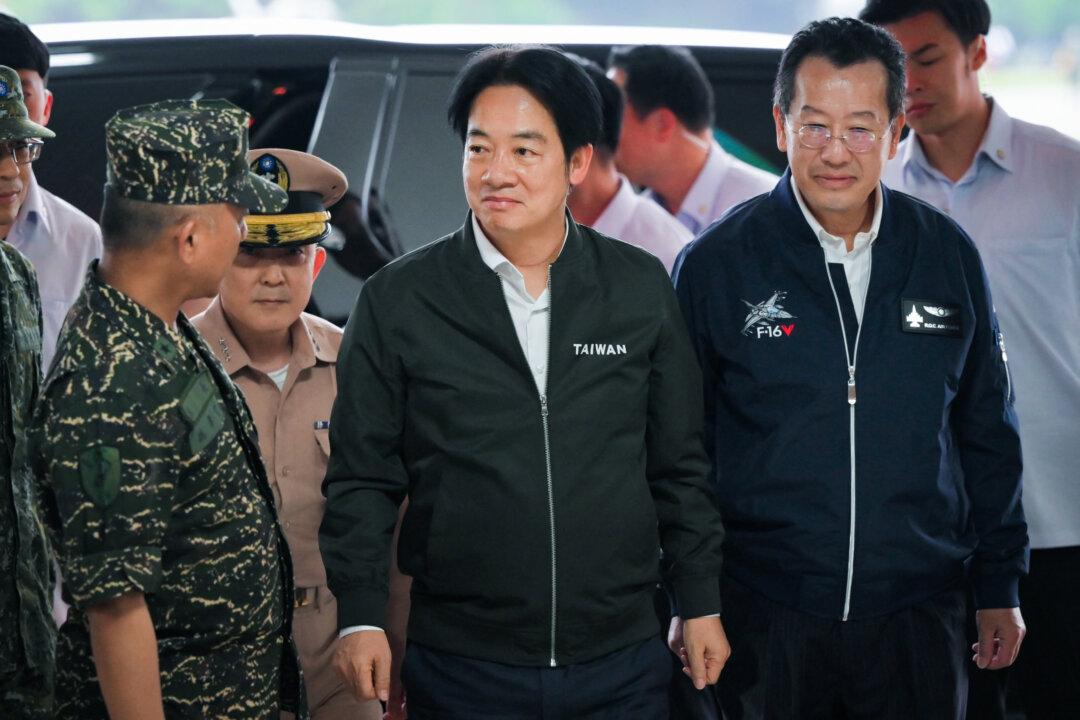TAIPEI, Taiwan—China kicked off large-scale military exercises around Taiwan on May 23, a move that drew condemnation from the island’s newly sworn-in administration of President Lai Ching-te.
“I will stand on the front line with all the brothers and sisters in the military to defend national security together,” Mr. Lai said during a visit to the island’s 66th Marine Brigade’s base in the northern city of Taoyuan on May 23.




